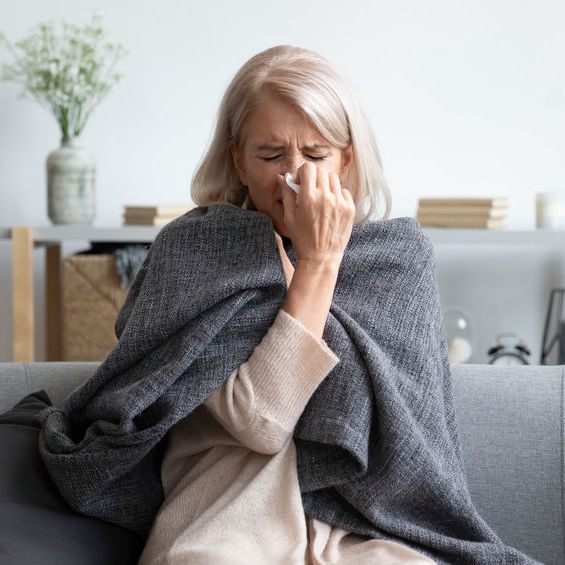iSavta | 21.03.2021
Common symptoms of allergy in senior patients are usually mistaken as mere side effects of their preexisting health conditions. However, the truth is that seniors are equally prone to allergies like everybody else. Seasonal allergies can pose unique issues to seniors that you need to consider and remember if you are a caregiver of a senior patient with allergy.

Recognize the Symptoms
Older adults are prone to lung diseases and nasal symptoms like nasal discharge and sneezing can usually be associated with respiratory illnesses. If your senior patient has a chronic respiratory illness or lung disease, it is all too easy to assume that sneezing and runny nose are only symptoms of their illness instead of an allergy symptom.
But, like other allergy sufferers of other ages, symptoms are similar in seniors that include the following:
- Sneezing
- Stuffy or runny nose
- Itchy throat, sinuses, or ear canals
- Watery or itchy eyes
- Postnasal drainage
- Ear congestion
Also, don’t forget that people may suffer allergies whatever their age might be. Just because your senior patient has no records of allergies in the past doesn’t mean they won’t suffer from it now.
Reduce Trigger Exposure
What is the most effective way of reducing symptoms of allergy in seniors? That is to identify their allergy triggers and lessen their exposure to these. The most common allergy triggers are the following:
- Pollen
- Dust
- Pine trees
- Grass
- Smoke
- Mold
- Chlorine
Pay close attention to triggers that might be in the immediate environment of your senior patient during flare-ups and make sure you take the necessary steps to lessen their exposure in the best way possible.
The best method to avoid triggers such as grass, pine trees, and pollen is to stay indoors with the windows closed. Inside, request the family to clean and dust on a regular basis to prevent mold and dust buildup. If it becomes stuffy inside, use a high-powered fan to circulate the area. Encourage your senior patient to bathe and change their clothes after spending time outside to ensure that they don’t carry allergens themselves all throughout the day.
Effects of Allergies in Seniors
Allergy symptoms such as watery and itchy eyes and a runny nose can be a nuisance to other people but are not necessarily major health concerns. However, for seniors, the same thing cannot be said. Allergy symptoms not only lead to complications for senior patients with pre-existing cardiovascular or respiratory problems since medications can also trigger many other concerns.
For example, the common treatment medication for allergies, antihistamine, is found to increase a person’s blood pressure. Aside from that, this might also have an interaction with other medications that a senior patient might be taking that can cause severe side effects such as dizziness, dry mouth, urinary retention, and confusion.
Caring for senior patients with allergies might be a bit tricky but as long as you know what to do, you can continue to give them the care and assistance they need.


